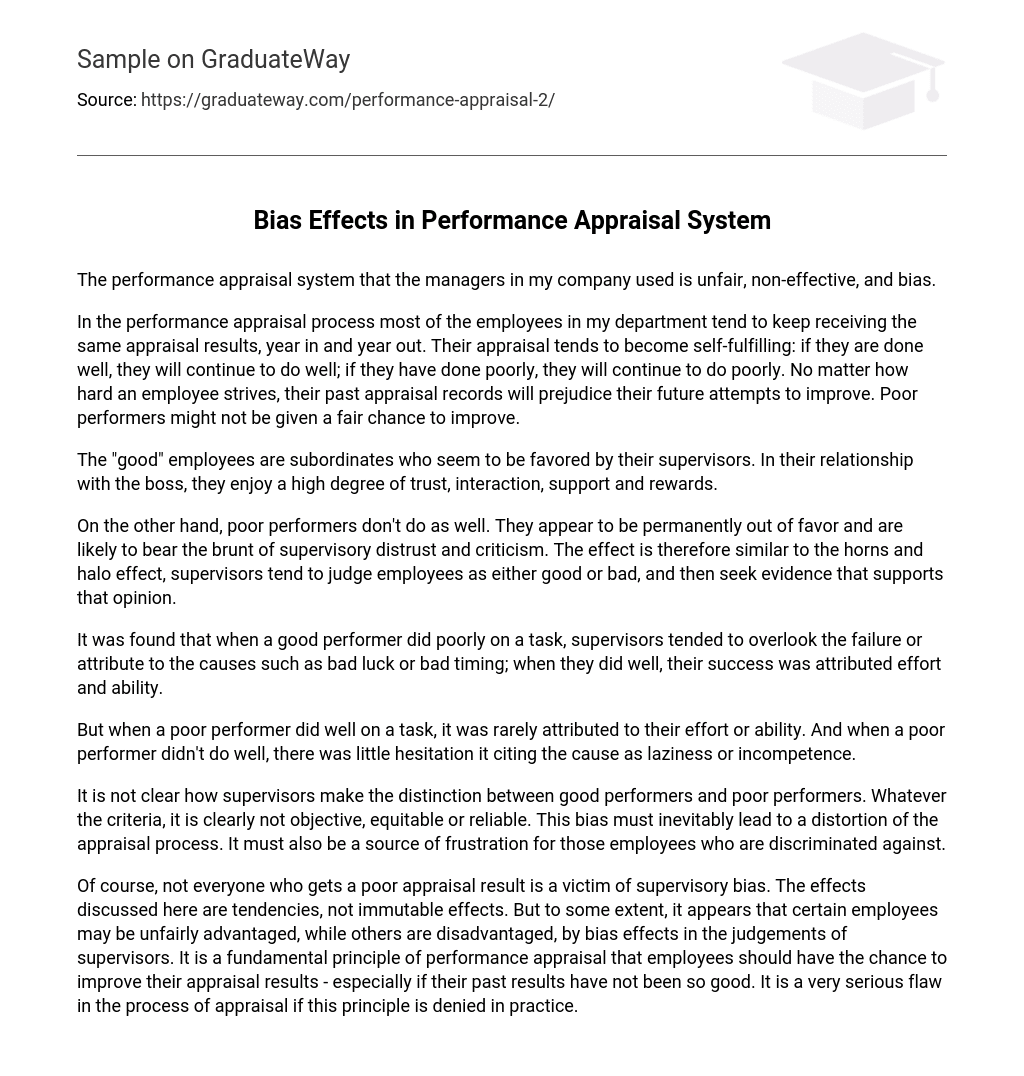The performance appraisal system that the managers in my company used is unfair, non-effective, and bias.
In the performance appraisal process most of the employees in my department tend to keep receiving the same appraisal results, year in and year out. Their appraisal tends to become self-fulfilling: if they are done well, they will continue to do well; if they have done poorly, they will continue to do poorly. No matter how hard an employee strives, their past appraisal records will prejudice their future attempts to improve. Poor performers might not be given a fair chance to improve.
The “good” employees are subordinates who seem to be favored by their supervisors. In their relationship with the boss, they enjoy a high degree of trust, interaction, support and rewards.
On the other hand, poor performers don’t do as well. They appear to be permanently out of favor and are likely to bear the brunt of supervisory distrust and criticism. The effect is therefore similar to the horns and halo effect, supervisors tend to judge employees as either good or bad, and then seek evidence that supports that opinion.
It was found that when a good performer did poorly on a task, supervisors tended to overlook the failure or attribute to the causes such as bad luck or bad timing; when they did well, their success was attributed effort and ability.
But when a poor performer did well on a task, it was rarely attributed to their effort or ability. And when a poor performer didn’t do well, there was little hesitation it citing the cause as laziness or incompetence.
It is not clear how supervisors make the distinction between good performers and poor performers. Whatever the criteria, it is clearly not objective, equitable or reliable. This bias must inevitably lead to a distortion of the appraisal process. It must also be a source of frustration for those employees who are discriminated against.
Of course, not everyone who gets a poor appraisal result is a victim of supervisory bias. The effects discussed here are tendencies, not immutable effects. But to some extent, it appears that certain employees may be unfairly advantaged, while others are disadvantaged, by bias effects in the judgements of supervisors. It is a fundamental principle of performance appraisal that employees should have the chance to improve their appraisal results – especially if their past results have not been so good. It is a very serious flaw in the process of appraisal if this principle is denied in practice.





